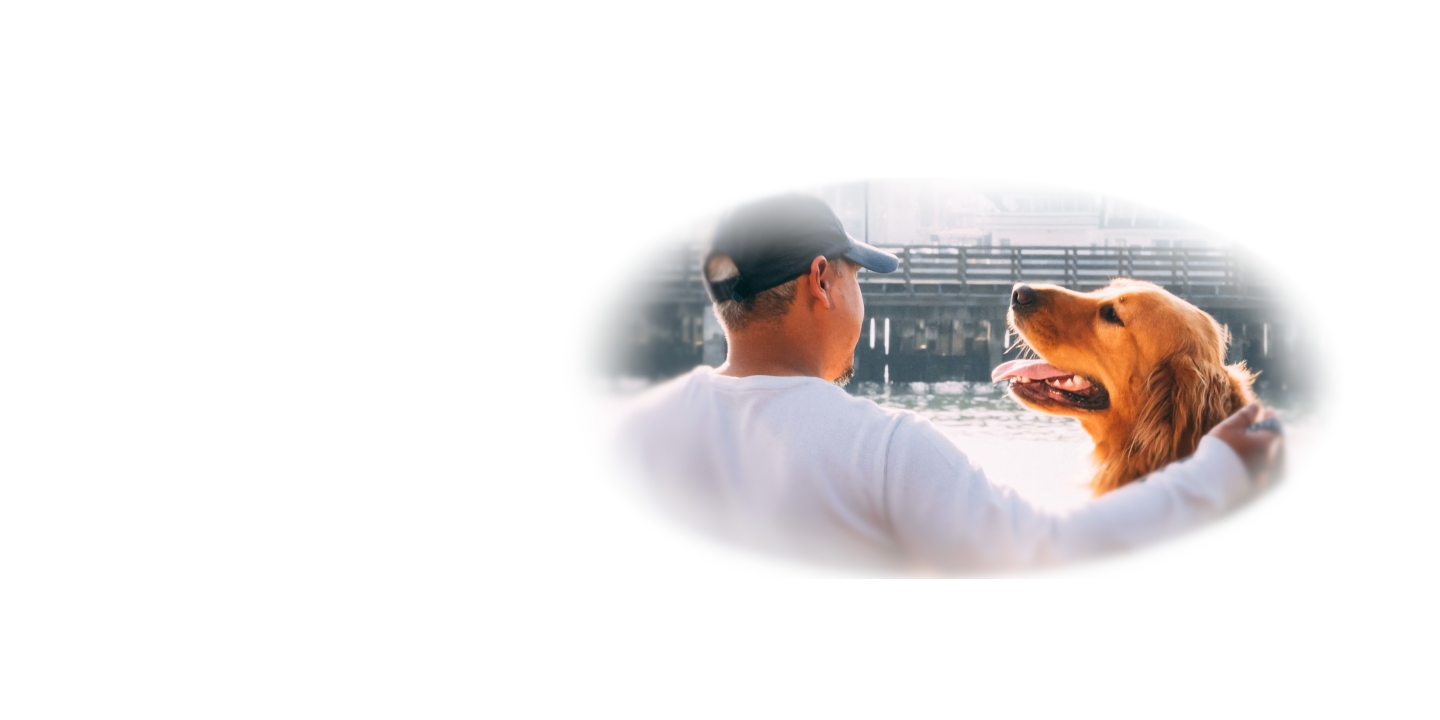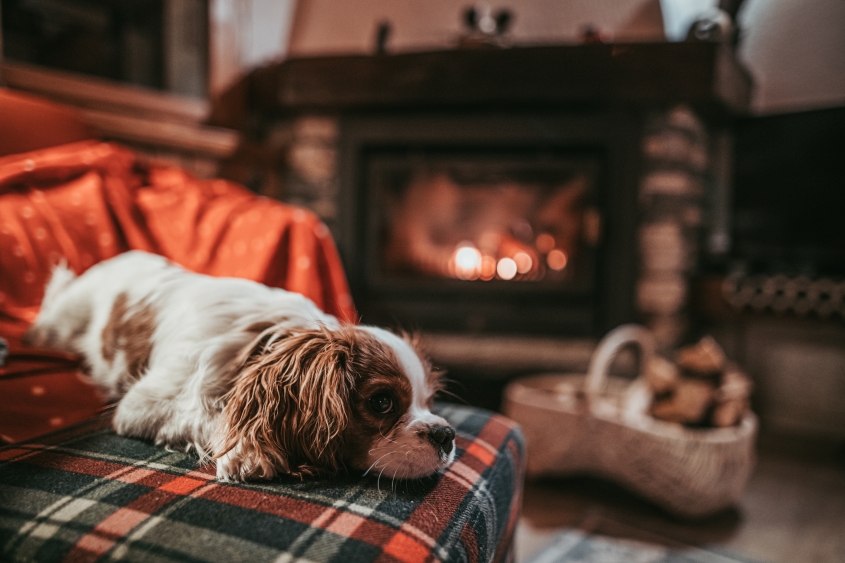Holiday hazards for dogs
Overview
The holidays are a joyful time of celebration, filled with family gatherings, delicious meals and plenty of sparkle and cheer. But, amidst the festivities, it's important to be mindful of some potential hazards that can affect our dogs. With food, decorations and social events in abundance, there are many risks that could lead to unexpected trips to the vet. Below are some tips to help you keep your dog safe and ensure a happy, healthy holiday season.
Decorations hazards
While decorations bring beauty to your home, some can pose serious risks to your dog. Keep these potential dangers in mind:
Tinsel, garland and tree ornaments
- Ingestion can lead to intestinal obstruction.
- Broken ornaments may cause mouth, throat, or intestinal injuries, or even choking.
Salt-dough ornaments
- These homemade decorations can attract pets and cause salt toxicity, a potentially life-threatening disturbance in electrolytes.
Tree lights and electrical cords
- Chewed cords can cause electrical burns or even electrocution.
Pine needles
- Ingesting pine needles from Christmas trees can irritate the mouth and cause vomiting, diarrhea, or even intestinal obstruction or perforation.
Tree water
- May contain harmful bacteria or chemicals that could make your dog ill.
Candles
- Fire hazard if knocked over. Keep candles out of reach.
Batteries
- Chewed and punctured batteries can cause chemical burns to the mouth and esophagus.
Snow globes
- Contains ethylene glycol, which is highly toxic.
- If a snow globe breaks, clean it up immediately to prevent accidental ingestion.
Gifted dog treats
- Some treats, like rawhide, can pose choking risks or cause intestinal blockages if they are difficult to digest.
Toxic plants
Several holiday plants, while beautiful and festive, are toxic to dogs, including the following:
Poinsettia
- Can irritate the mouth and stomach, causing drooling, vomiting and diarrhea.
Mistletoe
- Ingesting large amounts can cause vomiting, diarrhea, cardiac issues and low blood pressure.
Holly
- While not highly toxic, holly can cause drooling, vomiting, diarrhea and decreased appetite. The spiky leaves can also injure your dog’s mouth.
Lilies
- Highly toxic and can lead to kidney failure.
For a full list of toxic plants, refer to the ASPCA's Poisonous Plants list.
Foods
Some holiday treats can cause serious health issues for your pet. To keep your dog safe, it's important to stick with treats specially formulated for dogs and remind your guests not to offer your pet any food from the table. Don’t leave food unattended on tables, counters, or anywhere dogs may be able to get to, and always make sure that garbage is secured.
Foods to strictly avoid:
Chocolate, coffee and caffeine
- These contain methylxanthines, which dogs cannot metabolize. Even small amounts can cause severe toxicity. Dark chocolate is especially dangerous.
Raisins and grapes
- Can lead to acute kidney failure, even in small amounts.
Xylitol
- A sugar substitute found in many sugar-free products, xylitol is highly toxic to dogs. Even small amounts can cause dangerously low blood sugar, seizures, or liver damage.
Onions and garlic, chives
- Can irritate your dog’s digestive system and lead to red blood cell damage, which can cause anemia.
Fatty foods (e.g., meat trimmings, gravy, cheese)
- High-fat foods can trigger vomiting and diarrhea, or even pancreatitis, a painful and serious condition.
Bones
- These can cause choking, tooth fractures, or even digestive tract obstructions.
Raw meat
- Can carry bacteria such as Salmonella and E. coli, which can harm both pets and humans.
Salty snacks
- Too much salt can lead to excessive thirst, urination and salt toxicity which can be fatal.
Corn cobs
- Can cause digestive blockages and obstructions.
Alcoholic drinks
- Alcohol can lead to vomiting, diarrhea, tremors, difficulty breathing and even coma or death.
Macadamia nuts
- Can cause weakness, vomiting, tremors and hyperthermia in dogs.
Yeast dough
- Can rise in your dog’s stomach, causing painful bloating and potentially twist, becoming a life-threatening condition. It can also ferment into alcohol, leading to drunken behavior and other dangers.
Stress from social gatherings
The holidays can bring changes to your dog’s routine, which can lead to stress. Help your dog stay calm during the festivities:
Lack of routine
- Try to maintain your dog’s normal schedule for meals and walks, even if your household is busier than usual. Short, regular periods of undivided attention can help.
Fear of strangers or loud noises
- Some dogs may feel anxious around large gatherings or unfamiliar faces. Speak to your veterinarian early before the holidays about potential anti-anxiety medications that may help. It’s often a good idea to try the medication before the event to see how your dog responds.
- Create a quiet area where your dog can retreat when overwhelmed by the noise or activity. This might include a comfortable bed, toys and long-lasting treats. Consider using a sound machine or a silicone lick mat to help them relax.
Guest’s medications
- If guests stay with you, ensure any medications and other potentially hazardous personal items are out of reach from curious pets.
By taking these precautions and planning ahead, you can ensure your dog enjoys the holiday season as much as you do—safely and happily!
Updated Dec. 2024


